2022 Workshops and Preconferences
Register for AAIC 2022 to attend this year’s series of workshops and preconferences, which provide an added opportunity to explore the most up-to-date basic science and the newest findings and practices for the prevention and treatment of Alzheimer's disease and other dementias.
All times are listed in Pacific Time (North America).
On This Page:
- > NIA-AA: Enabling Precision Medicine for Alzheimer’s Disease Through Open Science
- > NIA-AA: IMPACT Embedded Pragmatic Clinical Trials
- > Understanding Novel Models for Repeated Measures of Continuous Outcomes
- > The Basics of Fluid Biomarkers in Alzheimer’s Disease
- > Microvascular Dysfunction in VCID: From Bench to Bedside
- > Addressing Dementia Risk Through Social Determinants of Health
- > Getting Started with Neuroimaging Analysis
- > Prevention of Dementia by Treating Vascular and Metabolic Disorders
- > Alzheimer’s Imaging Consortium
- > ISTAART PIA Day
- > Technology and Dementia
- > Commercializing a Novel Therapeutic Target for Alzheimer’s Disease
Thursday and Friday
Friday
Saturday
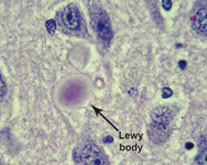
NIA-AA Symposium: Enabling Precision Medicine for Alzheimer’s Disease Through Open Science
Thursday, July 28: 1 – 6 p.m.
Friday, July 29: 8 a.m. – 6 p.m.
Marriott Marquis San Diego Marina
View the agenda
The 5th annual NIA-AA Symposium on Enabling Precision Medicine for Alzheimer’s Disease Through Open Science will feature an array of NIA-supported translational research programs that employ precision medicine principles and open-science practices to:
- Understand the complex and heterogeneous etiology of Alzheimer’s including mechanisms of neuropsychiatric symptoms in AD/ADRD.
- Identify and validate new disease-relevant targets and biomarkers.
- Develop the next generation animal models for late onset AD.
- Advance novel targets into drug discovery.
The symposium program will feature speakers from the Accelerating Medicines Partnership® for Alzheimer’s (AMP® AD) and its affiliated systems biology consortia, the MODEL-AD consortium and TREAT-AD translational centers, and other precision medicine research programs.
Target audience: Academic, biotech and pharmaceutical industry researchers with interests in target and biomarker discovery, and preclinical and clinical drug development; computational biologists; data scientists; and open science advocates.

NIA-AA Symposium: IMPACT Embedded Pragmatic Clinical Trials
Friday, July 29
10 a.m. – 4:30 p.m.
Marriott Marquis San Diego Marina
View the agenda
This symposium is designed to share key considerations in the design and conduct of embedded pragmatic clinical trials for persons living with dementia. The purpose of this workshop is to:
- Train investigators in the design and conduct of embedded pragmatic clinical trials (ePCTs) to improve care for persons living with dementia (PLWD) and their care partners.
- Highlight the importance of engaging stakeholders to identify priorities for improving care for persons living with dementia (PLWD) and their care partners.
- Provide investigators with guidance on design of ePCTs for PLWD and their care partners in everyday health care settings that provide dementia care.
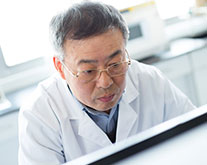
Understanding Novel Models for Repeated Measures of Continuous Outcomes Including Cognitive Function
Friday, July 29
8 a.m. – 5 p.m.
Hilton San Diego Bayfront
View the agenda
This course’s main goal is to provide researchers and health professionals with a practical review of advanced analytical methods commonly in scientific articles to model change of continuous outcomes (i.e. cognitive scores, some measure of physical function) over time.
This applied workshop will use real data examples to review advanced modern methods used to evaluate change in cognition over time. These models are used to ascertain:
- Linear change over time depending on predictors at baseline and time-varying.
- Linear change over time before and after a known event (i.e. new medication intake or diagnosis of a condition that may be associated with the function of interest).
- The onset of accelerated change (i.e. fixed and random change point models commonly used to study terminal decline).
- Half-decline of nonlinear curves thru the sigmoidal model (such as the sigmoidal curves postulated in Jack’s model).
- The shape of the trajectory using sigmoidal model and other strategies.
Good working knowledge of multiple regression models is required.
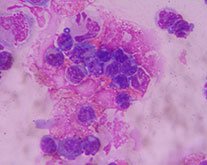
The Basics of Fluid Biomarkers in Alzheimer’s Disease
Friday, July 29
8 a.m. – 5 p.m.
Hilton San Diego Bayfront
View the agenda
The fluid biomarkers field for Alzheimer’s disease (AD) and other dementias is rapidly expanding. The purpose of this workshop is to provide research investigators, clinicians, residents, fellows, and graduate and postgraduate students with an in-depth understanding of the fundamental principles, inherent limitations and clinical and research applications of the most common AD biomarkers present in cerebrospinal fluid (CSF) and blood.
This workshop will include fundamental laboratory focused sessions that capture the basics of neurochemistry, sample pre-analytics, assay methods and development, quality control, and regulatory considerations. It will also incorporate clinical practice focused sessions that cover considerations for AD fluid biomarker implementation, context of use, disclosure, and the gaps and opportunities that exist for this field. These sessions will cover both standard AD biomarkers as well as emerging biomarkers and novel platforms in development.
Lectures will be followed by interactive Q&A sessions and discussions to ensure that participants gain an in-depth understanding of the current and future state of fluid biomarkers.
This workshop was organized by leading scientists in this field and by the Alzheimer’s Association Global Biomarkers Standardization Consortia (GBSC) and the ISTAART Biofluid Based Biomarkers PIA.

Microvascular Dysfunction in VCID: From Bench to Bedside
Friday, July 29
8 a.m. – 12:30 p.m.
Hilton San Diego Bayfront
View the agenda
There is increasing recognition by the Alzheimer’s disease (AD) field regarding vascular contributions to cognitive impairment and dementia (VCID). This vascular dysfunction is especially prominent at the capillary level. For example, small vessel disease of the brain has been linked to dementia, and many studies have reported blood-brain barrier breakdown in normal aging and early in AD. It is thought that VCID is due to a plethora of vascular and genetic risk factors, biological insults (e.g., metabolic disease, infection, immune response, etc.), lifestyle choices and environmental confounds that challenge and ultimately negatively impact the neurovascular unit.
This workshop will provide up-to-date information related to VCID from bench to bedside. First, it will educate participants to conceptualize the current state of the VCID field and identify advantages and disadvantages of existing methodologies. Also, it will allow participants to evaluate new approaches. Finally, attendees will be able to discuss ways to unify data. There will be a special emphasis on basic bench methodologies, translational experimental models, and clinical neuroimaging.
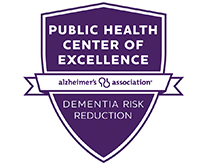
Addressing Dementia Risk Through Social Determinants of Health: A Public Health Center of Excellence Workshop
Friday, July 29
9 a.m. – 4 p.m.
Hilton San Diego Bayfront
The science on modifiable risk factors for cognitive decline and dementia continues to advance, and attention has increasingly focused on the need for a public health response to address those risk factors. No response would be complete without addressing social determinants of health (SDOH) — the conditions present where people live, learn, work and play that affect a wide range of health risks and outcomes. Some SDOH may increase the risk for developing dementia, while other SDOH are barriers to addressing modifiable risk factors.
This workshop will connect research and practice: bringing together dementia researchers and public health academics and practitioners to increase understanding of SDOH related to dementia risk, review the scientific evidence, and discuss ways that public health can act.
Sponsored by the Public Health Center of Excellence on Dementia Risk Reduction at the Alzheimer's Association and the U.S. Centers for Disease Control and Prevention (CDC).
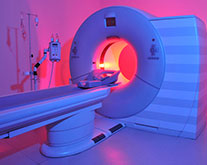
Getting Started with Neuroimaging Analysis
Friday, July 29
1 – 5 p.m.
Hilton San Diego Bayfront
View the agenda
Getting Started with Neuroimaging Analysis will provide practical information and an enhanced understanding on how to work with and analyze medical imaging data from magnetic resonance imaging (MRI) and positron imaging tomography (PET).
The initial portion of this workshop will focus on the understanding of the basic structure of an image, how to traverse images, data extraction and how voxels relate to world coordinates. Subsequent lectures will be followed by interactive sessions to demonstrate simple workflows including tissue segmentation, registration and pre-processing steps of fMRI or DTI. The objective of this workshop is to ensure participants gain an in-depth appreciation of commonly used interpretive clinical and or research applications for each methodology.
Target audience: This hands-on workshop can serve as a beginners or refresher course for established investigators, clinicians and trainees involved in the use of imaging techniques in the study of Alzheimer’s disease, related disorders and normal aging.
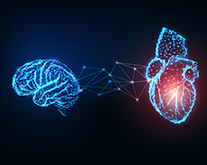
Prevention of Dementia by Treating Vascular and Metabolic Disorders
Friday, July 29
1:30 – 5 p.m.
Hilton San Diego Bayfront
This think-tank style workshop will consider the prospects for a comprehensive global effort to validate the hypothesis that “…widely prescribed medications for various vascular disorders [that are safe, effective, and readily available at low cost] may delay the onset of cognitive impairments and reduce the risk of dementia-Alzheimer’s…”.
The primary rationale for this meeting is the convergence of compelling evidence, from differing angles of research, which provide strong support for the “hypothesis” that vascular factors are modifiable risk for cognitive impairments associated with chronic brain disorders. The discussions will focus on such themes as:
- Various strategies to broaden the options for “clinically meaningful” interventions by considering alternative therapeutic targets to prevent cognitive impairments in dementia.
- Repurposing existing medication; in contrast to traditional approaches to demonstrate the efficacy of de novo agents.
- Assessing the pragmatic utility-merits of various approaches or types of studies to demonstrate efficacy of existing drugs for new indications.
The deliberation is expected to culminate with a set of actionable policy recommendations regarding how to proceed in creating such multi-national collaborative consortia. The prospective roadmap for future public policies will reflect the consensus recommendations of key opinion leaders (KOLs) for such a global initiative.
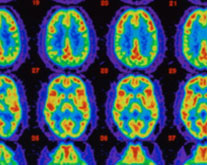
Alzheimer’s Imaging Consortium (AIC)
Saturday, July 30
8 a.m. – 5 p.m.
San Diego Convention Center
View the agenda
The Alzheimer's Imaging Consortium (AIC), a preconference to AAIC, will focus on the clinical application and methodological development of neuroimaging (MRI, PET, SPECT, CT and others) to Alzheimer's disease, other dementias and normal brain aging. The program consists of invited speakers, as well as oral and poster presentations from submitted abstracts. A reception will follow for registered attendees.
Target audience: All clinicians involved in the care or research of individuals with memory or other cognitive complaints (including but not limited to neurologists, psychiatrists, radiologists, geriatricians, neuropsychologists, physicians and nurses); researchers, industry and regulatory agency stakeholders; and others involved in the use of imaging techniques in the study of Alzheimer’s disease, related disorders and normal aging.
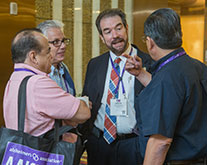
ISTAART Professional Interest Area (PIA) Day
Saturday, July 30
8:15 a.m. – 4:15 p.m.
Join ISTAART Professional Interest Areas (PIAs) for targeted scientific sessions and exclusive networking opportunities. PIA Day is only open to current or new ISTAART members. View the PIA Day schedule or learn about ISTAART membership benefits and how to join.

Technology and Dementia
Saturday, July 30
9:30 a.m. – 4 p.m.
Hilton San Diego Bayfront
View the agenda
Technology and Dementia, a preconference to AAIC, will convene researchers and members of the industry interested in technology research and development, including mobile technology, home-based technology and social networking. Sessions explore various types of technologies as tools to support innovative study design in research and as interventions for persons living with dementia and their care partners. The program consists of invited speakers, as well as oral and poster presentations from submitted abstracts.
This preconference is organized by the Technology and Dementia Professional Interest Area (PIA) of the International Society to Advance Alzheimer's Research and Treatment (ISTAART).
Target audience: Researchers invested in the development, validation and implementation of technological products and services for individuals affected by dementia.

Commercializing a Novel Therapeutic Target for Alzheimer’s Disease
Saturday, July 30
1 – 3 p.m.
Hilton San Diego Bayfront
Academic scientists have an important and growing role in the translation of novel targets into potential therapeutics, a vital step in the quest to develop effective therapeutics for Alzheimer’s disease. This workshop will address key challenges academic scientists face when attempting to commercialize their science: from identifying when science is ready for translation to overcoming key challenges involved in becoming an entrepreneur starting a new company (NewCo). Some scientists don’t want to become entrepreneurs per se, but still need to understand how to de-risk an idea to attract external investment, as well as the different paths to commercialization. Considerations for licensing to an existing company versus building a NewCo will be discussed.
Much of the workshop will focus on key considerations and challenges when pursuing the path towards building a NewCo. The session will focus on:
- Key considerations when determining when it’s time to transition scientific discoveries from academia to biotech/pharma.
- Management considerations for first-time company founders.
- Identifying common reasons for failure other than negative readouts from pre-clinical or clinical trials.
This workshop will include an introduction to the relevant nomenclature associated with entrepreneurship and draw important distinctions between the roles of angel investors, professional venture capitalists, philanthropic foundations, and other sources of startup funding. It will also focus on issues including team building within a startup, the tension between management control and scientific control of a company, the meaning and implications of fiduciary duty, and the constructive or destructive role that boards of directors can play in emerging companies.
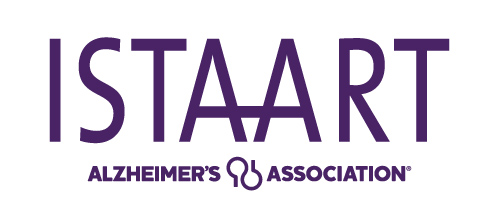
Advance Your Career
Join ISTAART, an inclusive global network of scientists, clinicians and dementia professionals. With newly discounted rates and free memberships for students, it’s easier than ever to become a part of ISTAART.
We use cookies to improve your experience on this website. Learn about options for managing your personal data in our Privacy Policy.
lg > 992px
md > 768px
sm < 767px
xs
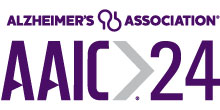
Join the Conversation #AAIC24